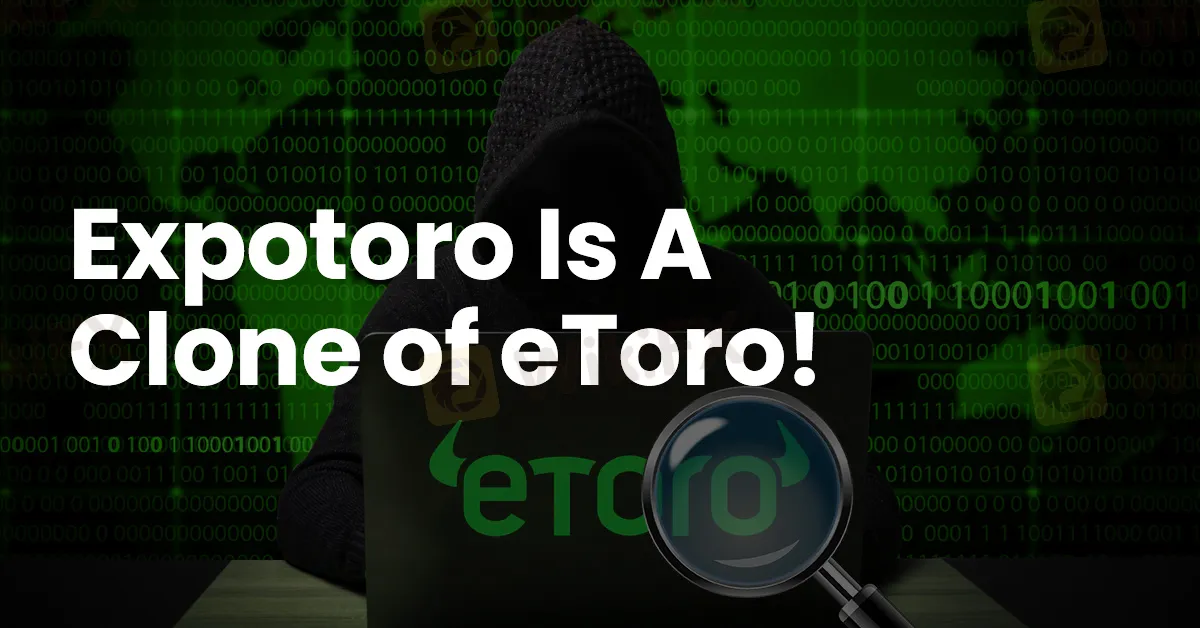简体中文
繁體中文
English
Pусский
日本語
ภาษาไทย
Tiếng Việt
Bahasa Indonesia
Español
हिन्दी
Filippiiniläinen
Français
Deutsch
Português
Türkçe
한국어
العربية
Expotoro Is A Clone of eToro!
Abstract:The discovery of Expotoro posing as eToro sheds light on the alarming prevalence of cloned firms, emphasizing the need for protective tools like WikiFX's mobile app to shield investors from fraudulent entities in the financial markets.

The Financial Conduct Authority (FCA), the regulatory body for financial markets in the UK, has uncovered a fraudulent entity named Expotoro / Tratoro, masquerading as the legitimate Israel-based investment platform eToro.
This clone firm, although not explicitly claiming authorization from the FCA, has been utilizing eToro's details to present itself as a genuine entity, a common tactic among fraudsters known as 'cloned firms.' These entities mimic authorized companies to appear trustworthy, often mixing false and accurate information about the legitimate firm.

The FCA emphasized that the firm in question lacks the necessary authorization to target British customers. They strongly advised investors to deal only with authorized financial firms and to verify their legitimacy through the Financial Services Register. They cautioned that dealing with unauthorized firms means exclusion from protections offered by the Financial Ombudsman Service or Financial Services Compensation Scheme (FSCS) in case of issues.
Consistently at the forefront of combating financial fraud, the FCA has been expanding its list of dubious brokers regularly. One prevalent method used by fraudsters involves creating fake or cloned websites, aiming to deceive individuals into sharing sensitive information or parting with their money.
The proliferation of these deceptive clone websites mimicking legitimate financial entities remains a persistent issue, despite ongoing regulatory efforts.
The FCA advises consumers to exercise caution, particularly when receiving unsolicited communications, as fraudsters often employ these cloned websites in such instances.
Interestingly, the FCA itself fell victim to cloning earlier this year when fraudsters replicated its website, creating a counterfeit page urging firms to register for annual fees.
The replication of established brokers by scammers is a widespread tactic, but tools like WikiFX's free mobile app offer a shield against such deceit. This application provides users with comprehensive broker verification, helping them steer clear of cloned entities and ensuring safe interactions with authorized, legitimate financial firms. Without further ado, download yours for free from Google Play/App Store now!

Disclaimer:
The views in this article only represent the author's personal views, and do not constitute investment advice on this platform. This platform does not guarantee the accuracy, completeness and timeliness of the information in the article, and will not be liable for any loss caused by the use of or reliance on the information in the article.
Read more

Malaysia’s Former PM’s Social Media Hacked to Promote Crypto Scam
A recent cryptocurrency scam has highlighted a growing and concerning trend—hackers hijacking the social media accounts of political figures to promote fraudulent digital assets. The latest incident involved Malaysia’s former Prime Minister, Mahathir Mohamad, whose X (formerly Twitter) account was compromised to market a fake meme coin called "Malaysia."

Lirunex Joins Financial Commission, Boosts Trader Protection
Lirunex joins the Financial Commission, offering traders €20,000 protection per claim. A multi-asset broker regulated by CySEC, LFSA, and MED.

Heartbreak and Empty Wallets: Romance Scams during Valentine’s
Valentine’s Day is supposed to be about love, but for many unsuspecting victims, it becomes a time of heartbreak and financial ruin. Romance scams have been on the rise, and the online trading world has become a prime hunting ground for fraudsters preying on emotions and emptying bank accounts.

Why Your Forex Trades Are Always Losing
There is no guaranteed way to win in forex trading, but why do so many people still fail?
WikiFX Broker
Latest News
Robinhood Halts Super Bowl Betting Contracts After CFTC Request
3-Day Online Scam Trap: Victims Lose $200K—Don't Be Next!
Japan's January PMI has been released, investors need to pay attention to these points!
Investment Scam on Telegram: How a Woman Lost Over RM65,000
Spotting Red Flags: The Ultimate Guide to Dodging WhatsApp & Telegram Stock Scams
WikiFX Review: Why so many complaints against QUOTEX?
Trans X Markets: Licensed Broker or a Scam?
Carmaker Kia becomes latest global firm to face tax trouble in India
Judge halts Trump\s government worker buyout plan: US media
BaFin Unveils Report: The 6 Biggest Risks You Need to Know
Currency Calculator


